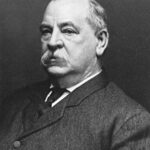President Grover Cleveland faced a complex crisis when American businessmen illegally overthrew Hawaiian Queen Liliuokalani in 1893. The coup occurred with unauthorized U.S. military support, creating a diplomatic nightmare for Cleveland’s administration.
Cleveland’s Initial Response to Hawaiian Queen Liliuokalani
Cleveland initially condemned the illegal overthrow after taking office. He ordered Commissioner James Blount to investigate the coup thoroughly. The Blount Report revealed that Minister John Stevens had conspired with American businessmen. Cleveland declared the overthrow “an act of war” against a peaceful nation. ⚠️ He refused to support immediate annexation of Hawaii.
The Policy Failure
Despite condemning the coup, Cleveland failed to restore Hawaiian Queen Liliuokalani to power. He demanded the provisional government step down and restore the monarchy. The American-led government refused Cleveland’s demands entirely. Cleveland lacked the political will to use military force for restoration. 📊 This created a dangerous precedent for American imperialism.
Political Consequences
Cleveland’s inconsistent policy drew criticism from multiple sides. Republicans accused him of weakness in foreign policy matters. Anti-imperialists criticized his failure to restore legitimate Hawaiian sovereignty. 💰 American sugar interests continued pressuring for annexation throughout his presidency.
Impact:
Cleveland’s handling of the Hawaiian Queen Liliuokalani overthrow created lasting consequences for American foreign policy and Pacific relations. His inconsistent approach enabled American imperialism while abandoning a legitimate sovereign ruler.
Immediate Political Fallout
Cleveland’s refusal to annex Hawaii initially pleased anti-imperialist Democrats. However, his failure to restore Hawaiian Queen Liliuokalani angered sovereignty advocates. The provisional government remained in power despite lacking legitimacy. 🔥 This created ongoing tensions between the U.S. and Hawaiian natives. Republicans used Cleveland’s perceived weakness as campaign ammunition in 1896.
Long-term Imperial Consequences
Cleveland’s inaction established a dangerous precedent for American expansion. The provisional government continued suppressing native Hawaiian rights and culture. William McKinley later annexed Hawaii in 1898 during the Spanish-American War. 🌍 This marked a significant shift toward American imperialism in the Pacific. The overthrow became a model for future American interventions.
Impact on Hawaiian Sovereignty
The failed restoration devastated Hawaiian political independence permanently. Native Hawaiians lost their ancestral lands and political representation. 📉 Traditional Hawaiian culture faced systematic suppression under American rule. Queen Liliuokalani spent her remaining years fighting for Hawaiian rights. The overthrow’s effects continue impacting Hawaiian sovereignty movements today.
